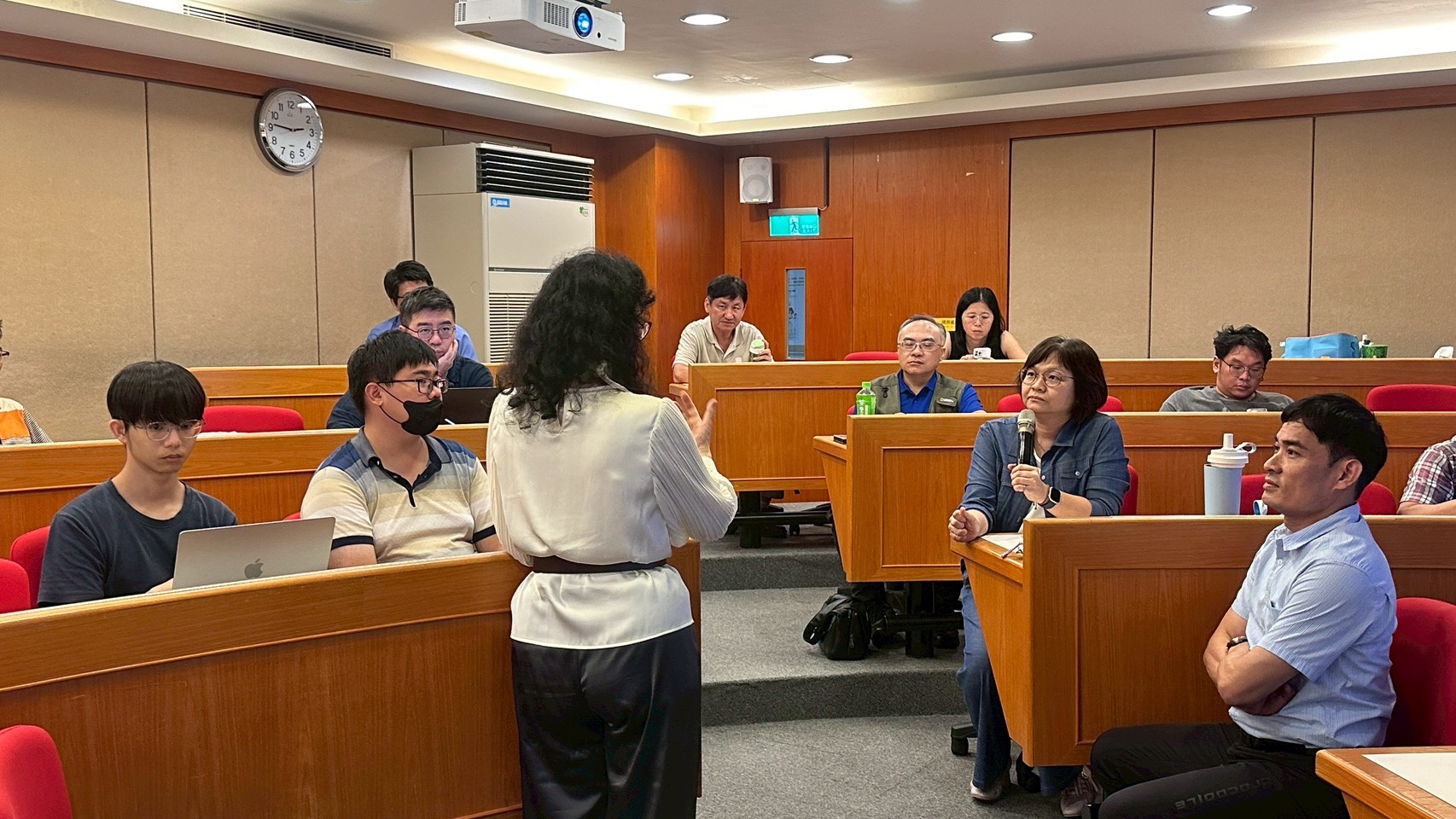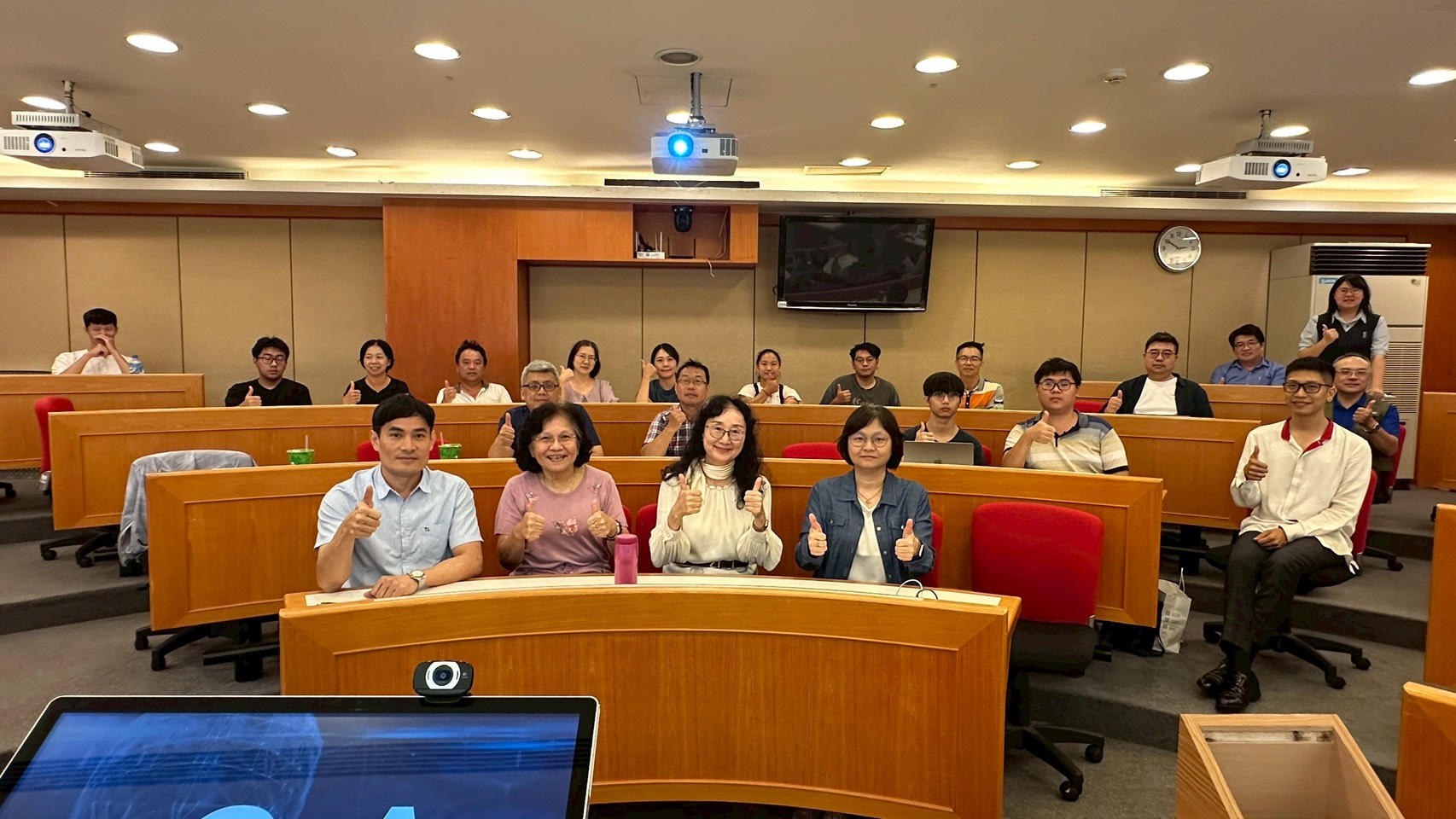Combining perspectives from art and technology, opening diverse possibilities and critical thinking in the development of affective AI
 Professor Zhu Jing-Mei from National Taiwan University’s Department of Theater and the AI & Robotics Research Center presented to faculty and students on the topic “The Era of AI Empathy,” sharing insights on trends in affective intelligence and AI applications.
Professor Zhu Jing-Mei from National Taiwan University’s Department of Theater and the AI & Robotics Research Center presented to faculty and students on the topic “The Era of AI Empathy,” sharing insights on trends in affective intelligence and AI applications.
The College of Information and Electrical Engineering at Asia University recently hosted the “SEL × AI Series” lecture, inviting Professor Zhu Jing-Mei from National Taiwan University’s Department of Theater and the AI & Robotics Research Center to present on “The Era of AI Empathy.” The event drew an enthusiastic audience.
Professor Zhu, the first Chinese scholar to earn a Doctorate in Directing from a U.S. institution, teaches at NTU’s Department of Theater and contributes to the university’s AI & Robotics Research Center, specifically the “Advanced Robotics” and “Cognition & Behavioral Science” research teams. She emphasized that affective intelligence will be key for AI to meaningfully integrate into human life, predicting that future “companion AI” will embody four core abilities: “I talk, I listen, I watch, I care.”
During her talk, Professor Zhu cited insights from tech leaders such as Fei-Fei Li (Google), Qi Lu (Microsoft), and Mariana Lin (Apple), highlighting that the essence of human-AI interaction lies in understanding and empathy. She noted Gartner’s forecast that by 2030, 75% of voice-based AI will possess affective intelligence, with the global market potentially exceeding USD 620 billion. Applications are expected across eldercare, education, customer service, and companion robots. She also mentioned that in the U.S., 33% of children turn to AI to express their feelings when facing challenges, illustrating how generative AI is entering the realm of psychological support.
Currently, Professor Zhu is collaborating with University College London (UCL) on an international research project to build Taiwan’s “AI Right-Brain” affective intelligence system. The project includes developing a multi-emotion recognition database, designing AI vocal expressions, and simulating robotic facial expressions and gestures, aiming to integrate aesthetics with emotional depth in AI.
Dean Hsu Ching-Hsien of AU’s College of Information and Electrical Engineering noted that the lecture offered students insights into the emotional aspects of AI and aligned with the college’s cross-disciplinary teaching philosophy, integrating AI, generative AI, and human-centered design. The college continues to promote the “AI × SEL × Human-Centered Design” module to enhance students’ practical skills and innovation in digital humanities, emotional technology, and empathetic dialogue.
Dean Hsu emphasized that Professor Zhu’s research aligns closely with the college’s future focus, including emotional speech recognition, companion robots for eldercare, and generative AI dialogue design. Through continued collaboration, AU aims to expand its academic and industry impact in affective AI, “right-brain AI,” and AI ethics education, fostering a globally minded, human-centered digital innovation campus.
 The CIEE at Asia University hosted the “SEL × AI Series” lecture. Professor Zhu Jing-Mei from National Taiwan University’s Department of Theater and the AI & Robotics Research Center (front row, right 2), Dean Hsu Ching-Hsien of AU’s College of Information and Electrical Engineering (front row, left 1), and participating faculty and students posed for a group photo.
The CIEE at Asia University hosted the “SEL × AI Series” lecture. Professor Zhu Jing-Mei from National Taiwan University’s Department of Theater and the AI & Robotics Research Center (front row, right 2), Dean Hsu Ching-Hsien of AU’s College of Information and Electrical Engineering (front row, left 1), and participating faculty and students posed for a group photo.





